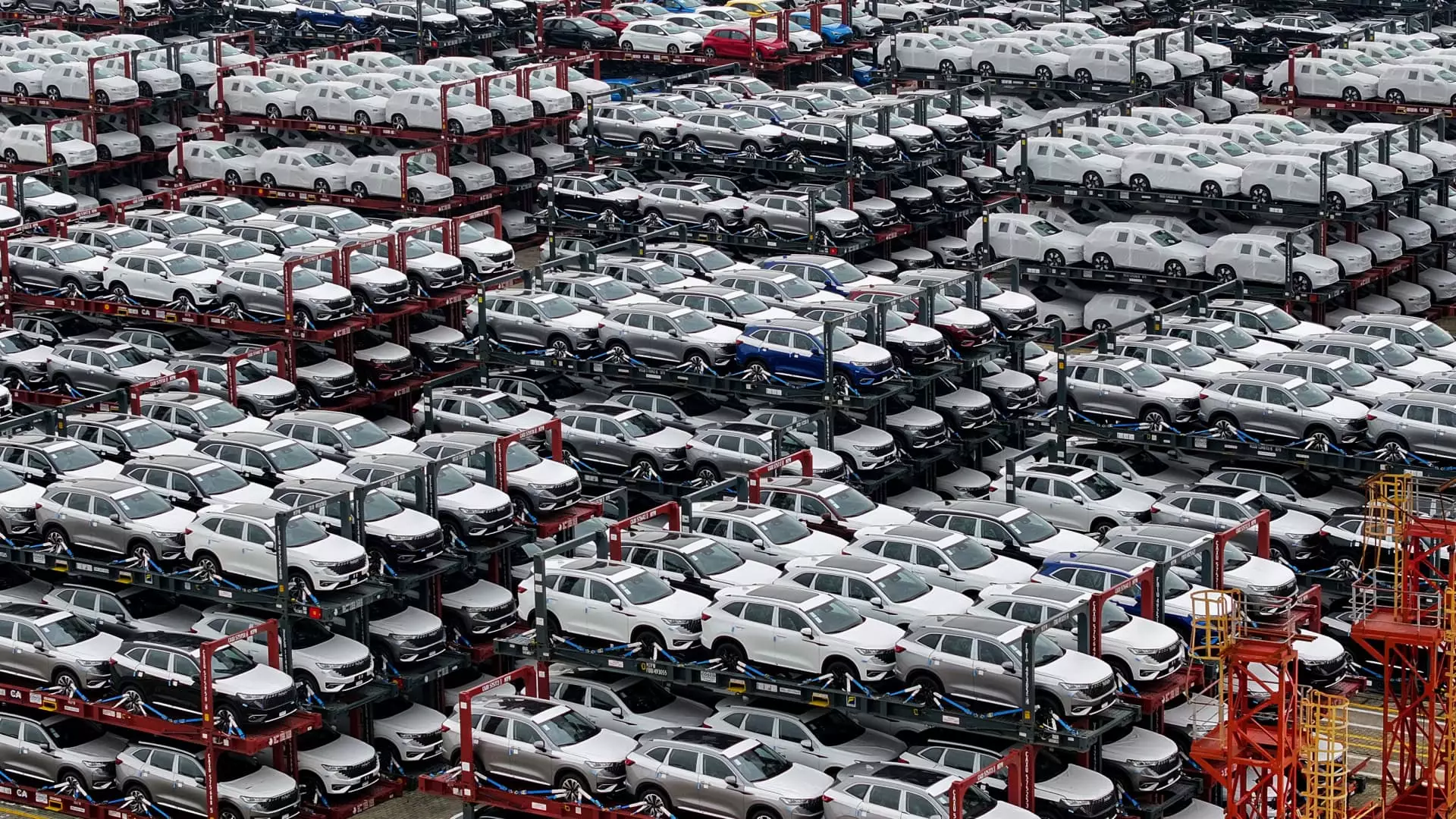China and the European Union have reached an agreement to initiate discussions regarding the proposed imposition of tariffs on Chinese-made electric vehicles (EVs) being imported into the European market. This decision marks a significant step in addressing the ongoing trade issues between the two economic powerhouses.
Germany’s Economy Minister Robert Habeck revealed that EU commissioner Valdis Dombrovskis informed him about the initiation of concrete negotiations on tariffs with China. This development came after China’s commerce ministry announced that Wang Wentao, head of the ministry, and Dombrovskis had agreed to commence consultations concerning the EU’s anti-subsidy investigation into Chinese EVs.
Habeck expressed his surprise at the new negotiation timetable, highlighting the significance of taking this first step in the right direction. He acknowledged that while there is still a long way to go, starting these negotiations was a crucial initial move that was previously unattainable.
The European Union’s willingness to engage in discussions regarding tariffs on Chinese exports was emphasized by Habeck during his recent visit to China. He reiterated the importance of ensuring a level playing field in markets, particularly in light of proven subsidies that unfairly boost companies’ export advantages.
Apart from trade-related issues, Habeck also addressed concerns regarding China’s support for Russia in the ongoing conflict in Ukraine. He stressed that circumventing sanctions imposed on Russia was unacceptable and urged Chinese officials to consider the broader implications on their economic relations with European countries.
The EU’s provisional duties on imported Chinese EVs are scheduled to be implemented by July 4, with a continued investigation that could lead to definitive duties being imposed in November. Habeck emphasized the importance of negotiations and dialogue during this phase, underlining that the proposed tariffs were not intended as punitive measures.
Habeck clarified that the European Commission’s thorough examination of potential unfair subsidies provided to Chinese companies was not meant as punishment but rather as a means of addressing any advantages granted by Beijing. He reiterated the EU’s commitment to fair competition practices and the necessity of compensatory measures in cases of unfair advantages.
In response to the proposed EU duties, Chinese officials, including Zheng Shanjie, chairman of China’s National Development and Reform Commission, emphasized their commitment to protecting Chinese companies. They argued that the growth of China’s new energy industry was the result of technological advancements and market competitiveness rather than unfair subsidies.
Despite the looming threat of tariffs, there remains ample room for negotiation and discussion between the EU and China. Both parties expressed the desire for a mutually beneficial resolution to the trade tensions, highlighting the potential for creative solutions to mitigate the impact of tariffs on Chinese industries.
The decision to commence talks on tariffs for Chinese-made electric vehicles represents a positive step towards addressing trade disputes between China and the European Union. By fostering open dialogue and negotiation, both parties can work towards a fair and equitable resolution that promotes balanced and competitive markets in the automotive industry.


Leave a Reply